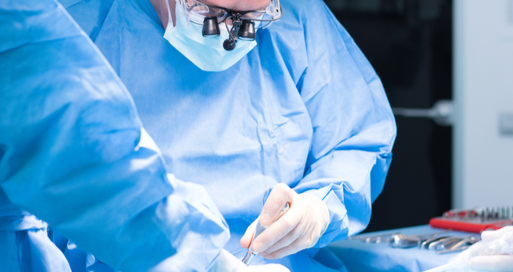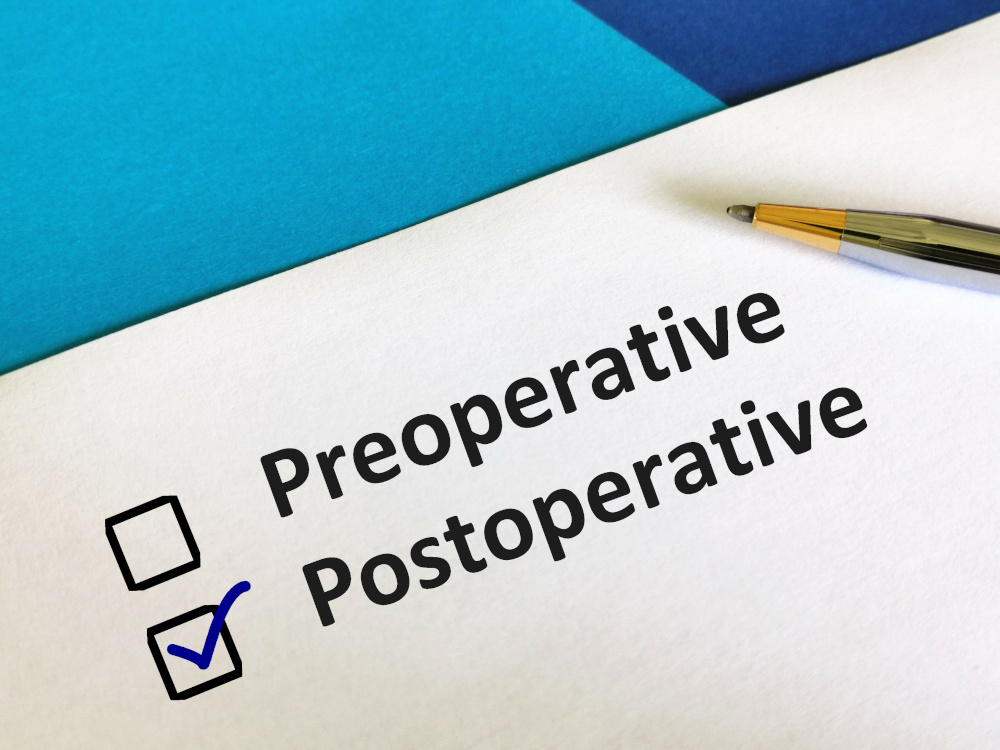General Post-Operation Surgical Instructions

After you have oral surgery at Argyle Associates, you will be given specific instructions by your Oral & Maxillofacial Surgeon regarding post-operation recovery. Excellent oral hygiene is important but the details of your post-operative care may vary depending on the type of procedure that you had. Below you will find general information for post-operation surgical instructions. Should you have any questions at any point during your recovery, our office would be happy to answer them. If you are experiencing any serious side effects, get in touch with our clinic immediately.

- Fill prescriptions promptly for antibiotics or pain medication.
- Apply ice packs for the initial 24 hours, extending up to 3 days post-surgery.
- Use a soft toothbrush and avoid swollen gum tissue for 2-3 days.
- Mix 1 cup of warm water and 1/4 tsp of salt
- No rinsing or spitting on the day of your surgery
- First 3 days: Rinse every 2 hours while awake
- Next 2 weeks: Rinse after every time you eat
- Mashed potatoes
- Pasta
- Yogurt or blended fruit
- Ice cream
- Soft-cooked vegetables
- Soup
Post-Operation Recovery
Medications
Medications
Follow these guidelines for post-operation care:
- Fill prescriptions promptly, especially pain medication, to manage discomfort effectively.
- Wisdom teeth or multiple extractions may require regular pain medication for the initial 24 hours.
- Complete any prescribed antibiotics to support optimal healing.
- If you have specific health conditions or allergies, consult your family doctor and inform us regarding concerns about Tylenol or Advil use.
Icepacks
Icepacks
For optimal post-operation care:
- Ice packs should be used for a minimum of 24 hours or up to 3 days if preferred, alternating every 20 minutes on and off.
- Focus the ice packs on the face at the surgical site, particularly for wisdom teeth extraction.
- Ensure a thorough understanding of these instructions for a smoother recovery process.
Freezing
Freezing
The duration of freezing to the surgical area (local anesthesia) varies, lasting from 4-12 hours depending on the type used. If numbness persists beyond 24 hours, kindly contact our office for further guidance.
Bleeding
Bleeding
Post-operation, it’s crucial to manage initial post-operative bleeding effectively. Utilize tightly rolled gauze packs, applying firm, constant pressure to the surgical site(s) by biting down on the gauze. Change gauze packs no more frequently than once per hour, discontinuing use if minimal staining occurs after 1-2 hours. If moderate bleeding persists, continue biting on the gauze as needed. While minor bleeding or oozing is normal for the first day or two, if vigorous, heavy bleeding with large clots occurs 5 hours after surgery, please contact the on-call doctor for prompt evaluation.
Swelling
Swelling
Swelling typically peaks 3 days post-surgery and gradually diminishes over the next 5-7 days. Common bruising will subside along with the swelling. Should swelling recur after the initial week, promptly reach out to our office. For larger procedures, consider sleeping in a reclining chair or elevating your head above the heart using books under the mattress for the first 3 days to reduce swelling.
Rinsing
Rinsing
To ensure a smooth recovery, limit speech, avoid smoking and alcohol, stick to a soft diet, stay hydrated, manage pain as directed, and attend follow-up appointments.
Brushing
Brushing
Following surgery, you can start brushing your teeth the day after the procedure. It’s advisable to opt for a soft toothbrush and carefully avoid the gum tissue around the surgical site for the initial 2-3 days.
Constipation
Constipation
If you were prescribed a narcotic for pain control, such as Tylenol with codeine/Tylenol #3, oxycocet, Percocet, Tramacet, or Tramadol, be aware that it may lead to constipation. Initiate a bowel regimen (Colace, senekot, restoralax) to promote regular bowel activity.
Dry Socket
Dry Socket
A dry socket is where the blood clot has dissolved away in the wound. It is not a dangerous situation, but an uncomfortable one. The causes of dry socket, ranked in order of occurrence, are: smoking; birth control pills; poor oral hygiene/rinsing. If you have a dry socket, it will present as discomfort which increases in severity on postoperative day 5-6. It will occasionally cause discomfort which radiates to the ear, and the side of the head. If this occurs, please call the office as we will need to see you for an evaluation.
Nutrition
Nutrition
Stay hydrated by drinking plenty of fluids and stick to a soft diet until you can resume your normal eating habits. Steer clear of hot drinks and foods until the freezing wears off. Additionally, refrain from using straws in the initial 3 days to prevent potential issues like increased bleeding or the development of a dry socket.
Nausea
Nausea
In the event of post-surgery nausea or vomiting, you can consider using GravolTM, an over-the-counter product, taken orally if you’re experiencing nausea or in suppository form if vomiting occurs. The recommended adult dosage is 50 mg every 6 hours. It’s advisable to steer clear of milk products during this period. If nausea persists, feel free to contact our office for further assistance.
Stitches
Stitches
Most stitches will dissolve and fall out in approximately 1 week. Occasionally, a stitch may fall out within the first day or two following surgery. If this occurs, do not worry – simply make sure to rinse with salt water appropriately. The wound will heal properly in this case. If you have bone grafts placed, your stitches will fall out in 2-3 weeks. Postoperative visit is not needed. Brushing the wound will help speed up the loss of the sutures.
Dentures
Dentures
Following the removal of all your teeth, it’s advisable to keep your dentures in place overnight on the first evening post-surgery. Brush your dentures with a toothbrush and toothpaste, and reinsert them. However, avoid sleeping with your dentures after the initial night. If reinsertion becomes uncomfortable the next morning, keep them out until the swelling subsides and then reinsert them. Adhere to the provided rinsing instructions. It’s important to note that you should schedule an appointment with your dentist or denturist within 2 days after the surgery for any necessary adjustments.
Exercise
Exercise
Exercise should be done in moderation during the recovery period. No strenuous physical activity should be done for the first 5-7 days following your surgery.
Intravenous
Intravenous
In very few cases, some discomfort may occur at the IV site. Elevating your arm and applying moist heat with a wet face cloth or hot water bottle every ½-hour for 6 to 8 hours, will help alleviate the symptoms.
Post-Operation of Vehicles
Operation of Vehicles
If you have received sedation, it is mandatory that you NOT drive a vehicle, operate hazardous machinery, or consume alcohol for at least 24 hours following surgery, especially if drowsiness persists.
Smoking
Smoking
Post-operation, it’s crucial to be aware that smoking is the primary cause of delayed healing and complications (such as infection and dry socket) following oral surgery. Ideally, refraining from smoking after your surgery is advised. However, it is strongly recommended to abstain from smoking for at least 5 days after the operation to promote optimal healing and minimize the risk of complications.
Contact Us Today
